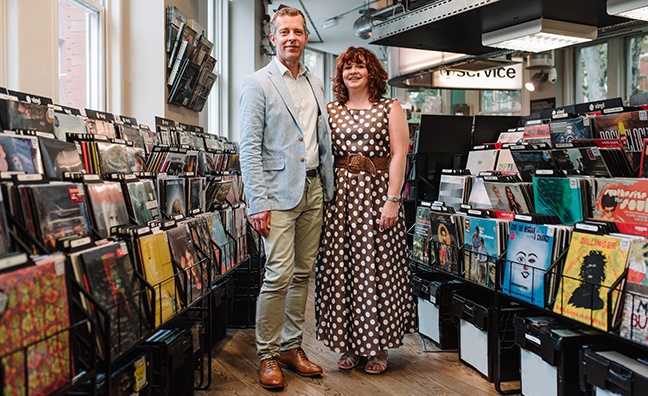As Music Week’s recent lockdown analysis feature proved, the coronavirus pandemic is having a huge effect on how the UK listens to music.
Some elements were relatively predictable: physical sales have dropped significantly since every record shop in the country had to close, while audio streams, particularly ad-funded ones, have risen after an initial dip.
But one lockdown trend surely wouldn’t have been predicted by anyone, as it involves a format so moribund Music Week declared it dead way back in 2016: the digital download.
For quarter after quarter, sales of both digital singles and albums, dominated in the UK by Apple’s iTunes store, have only gone in one direction: down. But, since the UK lockdown began on March 23 in chart week 13, there have been flickerings of a revival.
According to figures from the Official Charts Company, only 437,067 sales of digital singles were recorded in week 12, while digital albums accounted for just 71,824 units. Neither format has sunk so low since, with sales of tracks peaking at 773,336 in week 17 and albums at 124,944 in week 19. And while sales have fallen back since those peaks, they generally remain higher than they were pre-lockdown.
So why has the mini-recovery been happening?
“I put it down to the closure of retail,” BPI CEO Geoff Taylor (pictured left, with Kim Bayley, in the days before social distancing restrictions) told Music Week as part of our wider look at the lockdown sales figures. “There are some music buyers who haven’t made the jump to a subscription service and they’re substituting some of their usual physical purchase behaviour with digital purchases. And that’s good, people have a little bit more time to listen to digital albums and they’re investing in those.”
“I don’t actually think it’s weird,” said ERA CEO Kim Bayley (pictured right), who represents both physical and digital retailers. “For years, we’ve been saying people like to own music and there are lots of people who like to own music who haven’t been able to go to a shop and buy the physical version. They’re the people who’ve probably switched back into iTunes, because they want to own that music long term.”
But, with non-essential bricks-and-mortar retail due to re-open on June 15, albeit under social distancing restrictions, Bayley thinks the likelihood of a longer-term boost remains unlikely.
“The reality is, [consumers] decided long ago that they didn’t enjoy downloading and they preferred to own a CD or vinyl,” she said. “I suspect that, when the shops reopen, they will go back to that but, with anything like this, there’s a chance that a small number might stick with iTunes, having realised that they like it.”
So, can lockdown save the download?
“I don’t think so,” said Taylor. “If I’m honest, over the longer term, we’re more likely to see streaming [combined] with collecting of vinyl and, to some extent, CD box sets. That’s more likely to be complementary than digital purchases.
“Once lockdown is over and physical retail is open, I don’t know how sustained [download growth] will prove to be. It may be that some of the people that are now buying digital albums and singles enjoy it, find it a good way to consume and will continue to do that rather than buying physical products.
“But we always come back to the message that, if we offer the consumer the choice in all these different formats, then we’ll realise the value from one format or the other for the music industry,” he concluded. “What would be tragic would be if we lost a format, like physical, because of the closure of retail.”
* To read our full, exclusive lockdown analysis, click here. To make sure you can access Music Week wherever you are, subscribe to our digital issue by clicking here.











